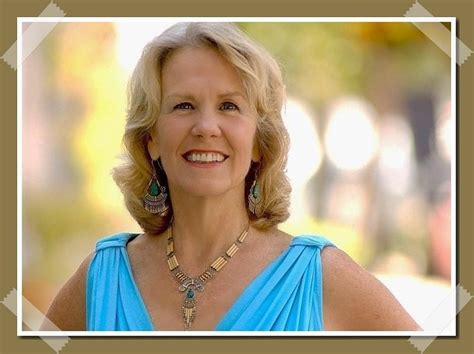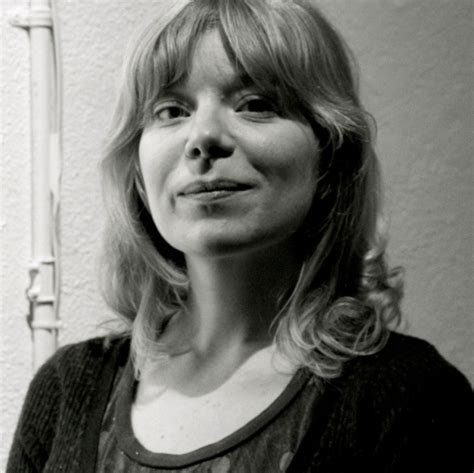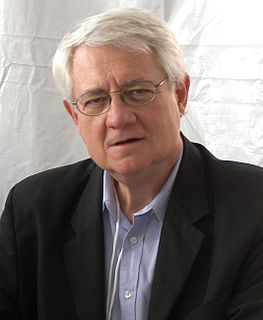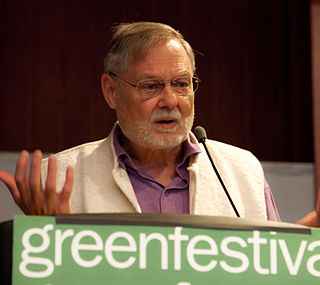Top 291 Habitual Quotes & Sayings - Page 5
Explore popular Habitual quotes.
Last updated on April 14, 2025.
Even happiness itself may become habitual. There is a habit of looking at the bright side of things, and also of looking at the dark side. Dr. Johnson has said that the habit of looking at the best side of a thing is worth more to a man than a thousand pounds a year. And we possess the power, to a great extent, of so exercising the will as to direct the thoughts upon objects calculated to yield happiness and improvement rather than their opposites.
Nothing is more despicable than the old age of a passionate man. When the vigour of youth fails him, and his amusements pall with frequent repetition, his occasional rage sinks by decay of strength into peevishness; that peevishness, for want of novelty and variety, becomes habitual; the world falls off from around him, and he is left, as Homer expresses it, to devour his own heart in solitude and contempt.
Imagine your mind as a garden and thoughts as the seeds you plant. Habitual negative, unhealthy, self-critical thoughts produce the weeds and thistles of depression, discontent, and anxiety in the garden of your mind. Luckily, the opposite is also true. Consistently planting positive, healthy, constructive thoughts will yield a crop of beautiful feelings, such as gratitude, love, and joy.
Unlike private enterprise which quickly modifies its actions to meet emergencies - unlike the shopkeeper who promptly finds the wherewith to satisfy a sudden demand - unlike the railway company which doubles its trains to carry a special influx of passengers; the law-made instrumentality lumbers on under all varieties of circumstances at its habitual rate. By its very nature it is fitted only for average requirements, and inevitably fails under unusual requirements.
The sad part is that all we're trying to do is not feel that underlying uneasiness. The sadder part is that we proceed in such a way that the uneasiness only gets worse. The message here is that the only way to ease our pain is to experience it fully. Learn to stay. Learn to stay with uneasiness, learn to stay with the tightening, learn to stay with the itch and urge of shenpa, so that the habitual chain reaction doesn't continue to rule our lives, and the patterns that we consider unhelpful don't keep getting stronger as the days and months and years go by.
In vain are Schools, Academies, and Universities instituted, if loose Principles and licentious habits are impressed upon Children in their earliest years . . . . The Vices and Examples of the Parents cannot be concealed from the Children. How is it possible that Children can have any just Sense of the sacred Obligations of Morality or Religion if, from their earliest Infancy, they learn their Mothers live in habitual Infidelity to their fathers, and their fathers in as constant Infidelity to their Mothers.
Assurance grows by repeated conflict, by our repeated experimental proof of the Lord's power and goodness to save; when we have been brought very low and helped, sorely wounded and healed, cast down and raised again, have given up all hope, and been suddenly snatched from danger, and placed in safety; and when these things have been repeated to us and in us a thousand times over, we begin to learn to trust simply to the word and power of God, beyond and against appearances: and this trust, when habitual and strong, bears the name of assurance; for even assurance has degrees.
I think I am beginning to understand why grief feels like suspense. It comes from the frustration of so many impulses that had become habitual. Thought after thought feeling after feeling action after action had H. for their object. Now their target is gone. I keep on through habit fitting an harrow to the string then I remember and have to lay the bow down. So many roads lead through to H. I set out on one of them. But now there's an impassable frontier-post across it. So many roads once now so many culs de sac.
This is the path of prayer-contemplative prayer, that is, as distinct from simple prayers of supplication and thanksgiving-which is a specific discipline of thought, desire, and action, one that frees the mind from habitual prejudices and appetites, and allows it to dwell in the gratuity and glory of all things. As an old monk on Mount Athos once told me, contemplative prayer is the art of seeing reality as it truly is; and, if one has not yet acquired the ability to see God in all things, one should not imagine that one will be able to see God in himself.
God loved us, and to prove it to us became human in order to become our brother in the flesh. He became poor, the poorest of the poor, in order to be able to include us all as his brothers (and sisters). He became a little child in order to be like children, even born, children from the slums.
God has loved us and has given us all that he is and has. The Father gave the Son, the Son gave his very self, the Holy Spirit became our habitual sanctifier.... How grateful I should be to this kind Savior!
Human contacts have been so highly valued in the past only because reading was not a common accomplishment.... The world, you must remember, is only just becoming literate. As reading becomes more and more habitual and widespread, an ever-increasing number of people will discover that books will give them all the pleasures of social life and none of its intolerable tedium.
We take for granted that we need to take showers, clean our house, and wash our clothes. Yet the mind and its thoughts need cleansing and ordering as much as our bodies. While few of us would consider eating dinner on yesterday's dirty dishes, we think nothing of tackling our problems with yesterdays cluttered minds.... The purpose to any meditation technique is to move beyond the normal contents of our consciousness, empty your mind of its habitual chatter, and concentrate your attention for the purpose of experiencing a higher state
Sometimes we deliberate - for example when we plan a long trip or - if we are not math wizards - when we solve long division problems. However, if we deliberated every time we acted we would never get through the day. Most of the time, we act for reasons without deliberation. I am not just talking about cases of simple, habitual action, like brushing your teeth, but also about more sophisticated action.
I love you as the plant that never blooms but carries in itself the light of hidden flowers; thanks to your love a certain solid fragrence risen from the earth, lives darkly in my body. and: No one can stop the river of your hands, your eyes and their sleepiness, my dearest. You are the trembling of time, which passes between the vertical light and the darkening sky. and: From the stormy archipelagoes I brought my windy accordian, waves of crazy rain, the habitual slowness of natural things: they made up my wild heart.
Visualizing, creative mental picturing, is no more difficult than what you do when you remember some scene out of the past, or worry about the future. Acting out new action patterns is no more difficult than deciding, then following through on tying your shoes in a new and different manner each morning, instead of continuing to tie them in your old habitual way, without thought or decision.
Normally we divide the external world into that which we consider to be good or valuable, bad or worthless, or neither. Most of the time these discriminations are incorrect or have little meaning. For example, our habitual way of categorizing people as friends, enemies, and strangers depending on how they make us feel is both incorrect and a great obstacle to developing impartial love for all living beings. Rather than holding so tightly to our discriminations of the external world, it would be much more beneficial if we learned to discriminate between valuable and worthless states of mind.
The Indwelling of Christ by faithis to have Jesus Christ continually in one’s eye, a habitual sight of Him. I call it so because a man actually does not always think of Christ; but as a man does not look up to the sun continually, yet he sees the light of it. So you should carry along and bear along in your eye the sight and knowledge of Christ, so that at least a presence of Him accompanies you, which faith makes.
It is believed that physiognomy is only a simple development of the features already marked out by nature. It is my opinion, however, that in addition to this development, the features come insensibly to be formed and assume their shape from the frequent and habitual expression of certain affections of the soul. These affections are marked on the countenance; nothing is more certain than this; and when they turn into habits, they must leave on it durable impressions.
Grace in women has more effect than beauty. We sometimes see a certain fine self-possession, an habitual voluptuousness of character, which reposes on its own sensations and derives pleasure from all around it, that is more irresistible than any other attraction. There is an air of languid enjoyment in such persons, "in their eyes, in their arms, and their hands, and their face," which robs us of ourselves, and draws us by a secret sympathy towards them.
There is so little to remember of anyone - an anecdote, a conversation at a table. But every memory is turned over and over again, every word, however chance, written in the heart in the hope that memory will fulfill itself, and become flesh, and that the wanderers will find a way home, and the perished, whose lack we always feel, will step through the door finally and stroke our hair with dreaming habitual fondness not having meant to keep us waiting long.
I have quitted all forms of devotion and set prayers but those to which my state obliges me. And I make it my business only to persevere in His holy presence, wherein I keep myself by a simple attention, and a general fond regard to GOD, which I may call an actual presence of GOD, or, to speak better, an habitual, silent, and secret conversation of the soul with GOD, which often causes me joys and raptures inwardly, and sometimes also outwardly, so great that I am forced to use means to moderate them, and prevent their appearance to others.
These various habits of thought, or habitual expressions of life, are all phases of the single life sequence of the individual; therefore a habit formed in response to a given stimulus will necessarily affect the character of the response made to other stimuli. A modification of human nature at any one point is a modification of human nature as a whole.
In truth, politeness is artificial good humor, it covers the natural want of it, and ends by rendering habitual a substitute nearly equivalent to the real virtue. It is the practice of sacrificing to those whom we meet in society, all the little inconveniences and preferences which will gratify them, and deprive us of nothing worth a moment's consideration; it is the giving a pleasing and flattering turn to our expressions, which will conciliate others, and make them pleased with us as well as themselves. How cheap a price for the good will of another!
The strain of constant adaptation to so many fearful events and discoveries is already too much to bear with sanity; one has to keep pretending to slip successfully into the new mould; a time will come when the tailored and camouflaged mind breaks beneath the burden; the stick insect in our brains no longer cares to resemble a twig on the same habitual human tree in the mere hope that it may survive extinction.
Magic is a sudden opening of the mind to the wonder of existence. It is a sense that there is much more to life than we usually recognize; that we do not have to be confined by the limited views that our family, our society, or our own habitual thoughts impose on us; that life contains many dimensions, depths, textures, and meanings extending far beyond our familiar beliefs and concepts.
I had an affinity for music and could play anything I heard on the piano, but I wasn't scholastically advanced in any way. It was more of a habitual tendency. I would work on weekends at piano bars playing jazz when I was an art student, but the music wasn't mine - it was covers: everything from Radiohead to really old jazz. But other than that, the only training I had was piano lessons from when I was nine until I was eleven.
My call for a spiritual revolution is not a call for a religious revolution. Nor is it a reference to a way of life that is somehow otherworldly, still less to something magical or mysterious. Rather it is a call for a radical reorientation away from our habitual preoccupation with self. It is a call to turn toward the wider community of beings with whom we are connected, and for conduct which recognizes others' interests alongside our own.
It is worth repeating that powerful imagination is not false outward vision, but intense inward representation, and a creative energy constantly fed by susceptibility to the veriest minutiæ of experience, which it reproduces and constructs in fresh and fresh wholes; not the habitual confusion of provable fact with the fictions of fancy and transient inclination, but a breadth of ideal association which informs every material object, every incidental fact with far-reaching memories and storied residues of passion, bringing into new light the less obvious relations to human existence.
Dialogue is a space where we may see the assumptions which lay beneath the surface of our thoughts, assumptions which drive us, assumptions around which we build organizations, create economies, form nations and religions. These assumptions become habitual, mental habits that drive us, confuse us and prevent our responding intelligently to the challenges we face every day.
When you’re living by default, you’re automatically reacting to life in habitual ways, many of which may be limiting you and your life. In contrast, living deliberately means making more conscious and constructive life choices. When you’re living deliberately, you’re living from a position of responsibility; you’re making choices with greater awareness. You’re taken yourself off autopilot, so you’re better prepared to align your actions with the results you want to achieve.
They say: sufferings are misfortunes," said Pierre. 'But if at once this minute, I was asked, would I remain what I was before I was taken prisoner, or go through it all again, I should say, for God's sake let me rather be a prisoner and erat horseflesh again. We imagine that as soon as we are torn out of our habitual path all is over, but it is only the beginning of something new and good. As long as there is life, there is happiness. There is a great deal, a great deal before us.
If cynicism and love lie at opposite ends of a spectrum, do we not sometimes fall in love in order to escape the debilitating cynicism to which we are prone? Is there not in every coup de foudre a certain willful exaggeration of the qualities of the beloved, an exaggeration which distracts us from our habitual pessimism and focuses our energies on someone in whom we can believe in a way we have never believed in ourselves?
Why suspend the habeas corpus in insurrections and rebellions? Examine the history of England. See how few of the cases of the suspension of the habeas corpus law have been worthy of that suspension. They have been either real treasons, wherein the parties might as well have been charged at once, or sham plots, where it was shameful they should ever have been suspected. Yet for the few cases wherein the suspension of the habeas corpus has done real good, that operation is now become habitual and the minds of the nation almost prepared to live under its constant suspension.
But the economic meltdown should have undone, once and for all, the idea of poverty as a personal shortcoming or dysfunctional state of mind. The lines at unemployment offices and churches offering free food includes strivers as well as slackers, habitual optimists as well as the chronically depressed. When and if the economy recovers we can never allow ourselves to forget how widespread our vulnerability is, how easy it is to spiral down toward destitution.
It seldom happens that a man changes his life through his habitual reasoning. No matter how fully he may sense the new plans and aims revealed to him by reason, he continues to plod along in old paths until his life becomes frustrating and unbearable-he finally makes the change only when his usual life can no longer be tolerated.
Compared with men, it is probable that brutes neither attend to abstract characters, nor have associations by similarity. Their thoughts probably pass from one concrete object to its habitual concrete successor far more uniformly than is the case with us. In other words, their associations of ideas are almost exclusively by contiguity. So far, however, as any brute might think by abstract characters instead of by association of con cretes, he would have to be admitted to be a reasoner in the true human sense. How far this may take place is quite uncertain.
You have to have a habitual vision of greatness ... you have to believe in fact that you will refuse to settle for mediocrity. You won't confuse your financial security with your personal integrity, you won't confuse your success with your greatness or your prosperity with your magnanimity ... believe in fact that living is connected to giving.
When you are a part of a world that is within an enclosed system, the biggest threat is that the loss of contact with any voice from the outside - a point of reference that is different from you - becomes habitual. The loss of this reference makes the enclosed system seem perfect. I can still feel this kind of threat today, the voice that gives legitimacy to various kinds of enclosure.
There is on the globe one single spot, the possessor of which is our natural and habitual enemy. It is New Orleans, through which the produce of three-eighths of our territory must pass to market, and from its fertility it will ere long yield more than half of our whole produce and contain more than half our inhabitants.
To have the management of the mind is a great art, and it may be attained in a considerable degree by experience and habitual exercise... Let him take a course of chemistry, or a course of rope-dance, or a course of any thing to which he is inclined at the time. Let him contrive to have as many retreats for his mind as he can, as many things to which it can fly from itself.
I do not know what the cat can have eaten. Usually I know exactly what the cat has eaten. Not only have I fed it to the cat, at the cat's insistence, but the cat has thrown it up on the rug, and someone has tracked it all over onto the other rug. I do not know why cats are such habitual vomiters. They do not seem to enjoy it, judging by the sounds they make while they are doing it. It's their nature. A dog is going to bark. A cat is going to vomit.
The mind is a magnet and we attract that with which we identify the self. In order to get the most out of life we must learn consciously to change many of our habitual thought patterns. This is not easy, for our old thought patterns cling to us with great tenacity, but, being thought patterns, they can be reversed. If you are filled with fear, refill yourself with faith, for faith always overcomes fear.
Of cases where a man is truthful both in speech and conduct when no considerations of honesty come in, from an habitual sincerity of disposition. Such sincerity may be esteemed a moral excellence; for the lover of truth, who is truthful even when nothing depends on it, will a fortiori be truthful when some interest is at stake, since having all along avoided falsehood for its own sake, he will assuredly avoid it when it is morally base; and this is a disposition that we praise.
In every human society of which we have any record, there are those who teach and those who learn, for learning a way of life is implicit in all human culture as we know it. But the separation of the teacher's role from the role of all adults who inducted the young into the habitual behavior of the group, was a comparatively late invention. Furthermore, when we do find explicit and defined teaching, in primitive societies we find it tied in with a sense of the rareness or the precariousness of some human tradition.
But indefinite visions of ambition are weak against the ease of doing what is habitual or beguilingly agreeable; and we all know the difficulty of carrying out a resolve when we secretly long that it may turn out to be unnecessary. In such states of mind the most incredulous person has a private leaning towards miracle: impossible to conceive how our wish could be fulfilled, still - very wonderful things have happened!
When a person's primary objective is to maximize material pleasures while minimizing discomforts, then life becomes a constant process of "pushing" (trying to push away from discomforts) and "grabbing" (trying to acquire or hold on to that which gives pleasure). With the loss of inner balance that accompanies a habitual "pushing and grabbing" approach to life, a deeper pain ensues-that of becoming aware of the ultimate unsatisfactoriness of the pleasure-seeking/pain-avoiding process itself.
Hell, I'd even failed with women. Three wives. Nothing really wrong each time. It all got destroyed by petty bickering. Railing about nothing. Getting pissed-off over anything and everything. Day by day, year by year, grinding. Instead of helping each other you just sliced away, picked at this or that. Goading. Endless goading. It became a cheap contest. And once you got into it, it became habitual. You couldn't seem to get out. You almost didn't want to get out. And then you did get out. All the way.
I suppose the most radical part of my teaching at present is that love is not a feeling. Everybody suffers from love, or the fear of it, or the lack of it. Why? Why is love so universally and inevitably heart-breaking, whether it be through the end of a love affair, the death of a loved one or being locked in with the habitual casualness or grim indifference of a partner? The answer is because we've been taught and conditioned by the world to believe that love is a feeling.














































